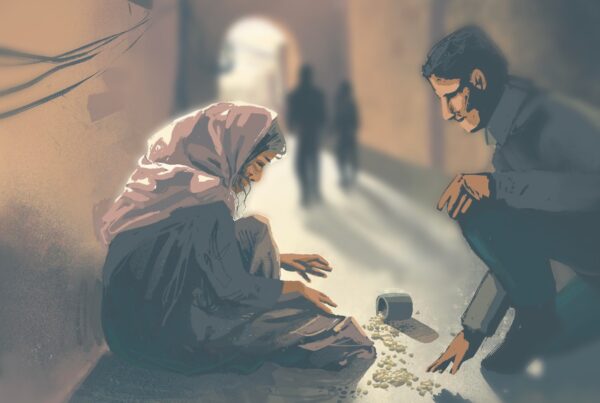My kids have all worked in restaurants, so I know that even when the kitchen is slow or the food isn’t everything advertised, the server waiting tables can’t control that. So, I’m a generous tipper – even when things don’t go well or the server is distracted or unpolished.
Everyone has bad days, right?
When we were missionaries in Ireland, I knew it wasn’t the custom to tip at all. But I thought, “These folks suffer from all sorts of loud U.S. tourists with unreasonable or odd expectations. Maybe an American being a bit generous isn’t a bad thing?” So I kept tipping even when it wasn’t expected.
My Dad had always said that you could tell a man’s character by how he treated the people around him who couldn’t talk back. So, like Dad, I tipped well.
Later, after years living in Ireland and years after Dad had passed, I found I didn’t have any cash to leave my usual tip at our local Italian restaurant in Greystones on the Irish coast. So I said to John, the owner, as I used a credit card, ”You know, if there were a place for me on your bill here, I’d add a tip for Janie.”
John scowled and snapped, “Are you saying I don’t pay my folks well? We aren’t like you Yanks! We pay our workers a good wage and benefits.” Of course, I said, “sorry” reflexively. (“Sorry” means lots of things in Ireland, so you say it a lot.)
Later, as I thought about John’s response, I put his candid words together with other instances over the years. And I realized how my history with my dad and my own culture’s expectations had kept me from being a caring person living in a different culture. Our culture and families shape us powerfully and in ways, we may not see.
But through what John said, I began to see two cross-cultural truths about loving others.
First, I knew that “love is not rude”(1 Cor. 13:5). And I had been to enough places to know that ”rude” is a cultural category. “Rude” changes from place to place, generation to generation, and even subculture to subculture. I learned it was rude to speak with your hand in your pocket in Uganda. I found it was rude to put someone’s business card in your back pocket wallet in Japan.
For me to insist that everyone adjusts to my expectations and ways—even the ones I hold with good intentions—isn’t loving. It is actually is a bit arrogant.
Love learns another person’s culture well enough to act properly and respectfully.
Love doesn’t just force others to get in line with my heritage and culture. Love isn’t arrogant like that. It watches, learns, and respects others without compromising faith.
Paul also teaches me that as a believer I should “be all things to all people” (1 Cor. 9) as best I can to represent the love of Christ rather than my own heritage or culture. God’s Spirit used that collision between John at Vino Pasta and my commitment to tipping “no matter what” to make me see what love and gospel mission look like in a new way.
This is a life-long journey. I am still learning how to listen and to enter the lives of folks around me with appropriate respect. Cultural arrogance runs deeply in my life. So deep, I can find it in unexpected places.
Even in something so seemingly simple, like leaving a tip.






